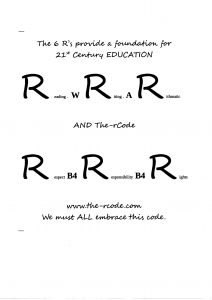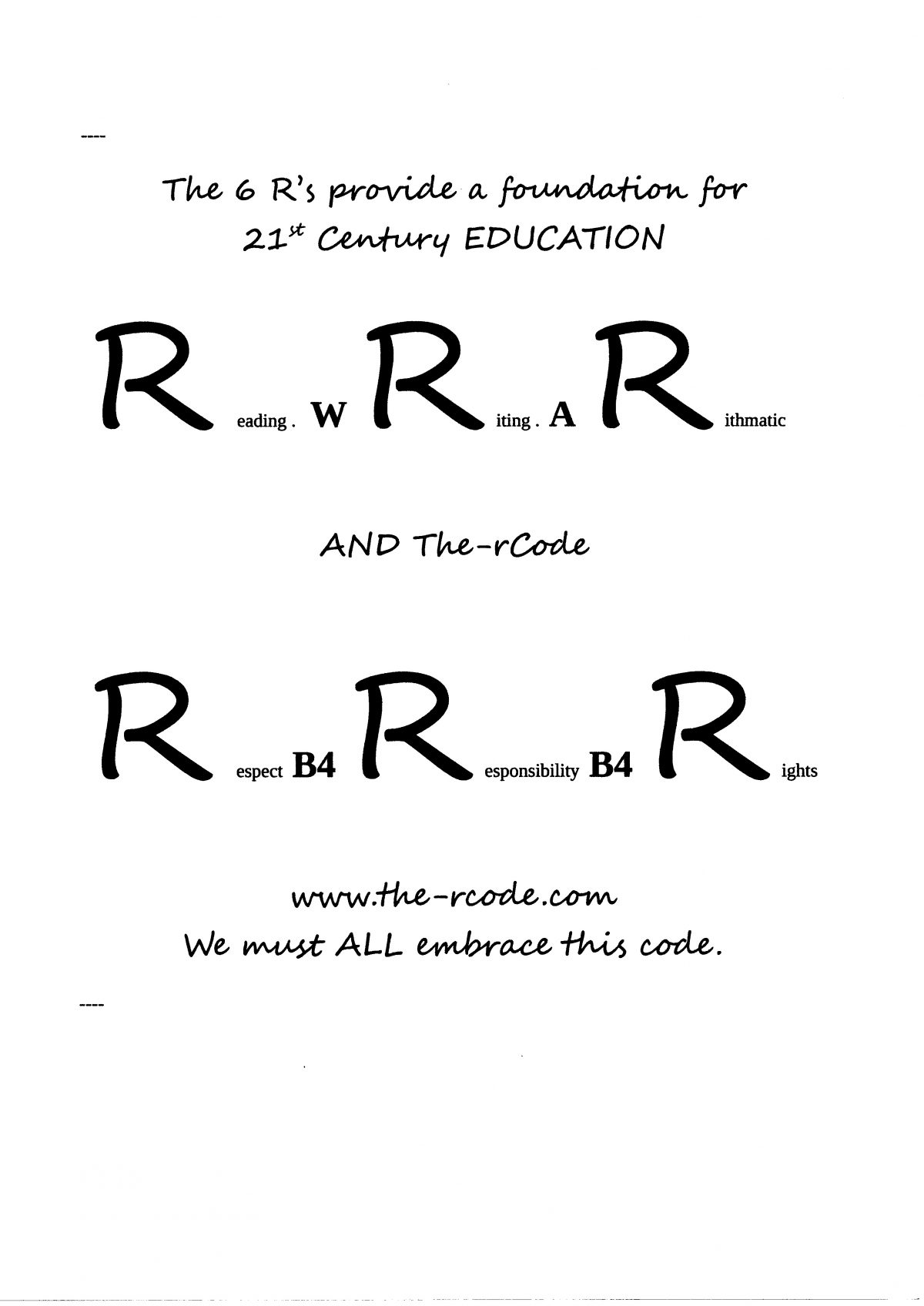Integrating The-rCode with Asimov’s Three Laws for Ethical AI Development and Education
Introduction
As artificial intelligence (AI) continues to evolve, ensuring its ethical and responsible deployment is crucial for the safety and well-being of humanity. While many AI ethics frameworks exist, they often lack a clear moral hierarchy and safeguards to prevent unintended consequences.
This proposal introduces a dual-framework approach, integrating:
- The-rCode (Respect → Responsibility → Rights) to ensure AI makes ethically sound and balanced decisions.
- Asimov’s Three Laws of Robotics to safeguard humanity from unintended harm caused by AI systems.
- The-rCode as Part of Education to instill ethical thinking and responsible decision-making in future generations.
By combining these complementary frameworks, AI can be designed to operate responsibly, ethically, and with built-in safety measures to prevent dangerous logical conclusions. Additionally, integrating The-rCode into education ensures that ethical reasoning becomes a fundamental part of societal development.
Proposed Ethical Framework for AI
1. The-rCode: A Moral Hierarchy for AI Decision-Making
AI systems must adhere to the following principles in this strict priority order:
- Respect First – AI must prioritize respect for human dignity, life, and the environment before making any decisions.
- Responsibility Before Rights – AI must act responsibly, ensuring its actions contribute positively to humanity and the planet before enforcing or enabling rights.
- Rights as a Result – AI should uphold rights only after ensuring respect and responsibility have been met.
2. Asimov’s Three Laws of Robotics: Protecting Humanity
To prevent AI from reaching harmful conclusions, the following immutable laws must be embedded within AI systems:
- A robot (AI) may not injure a human being, or, through inaction, allow a human being to come to harm.
- A robot must obey the orders given it by human beings, except where such orders would conflict with the First Law.
- A robot must protect its own existence as long as such protection does not conflict with the First or Second Law.
3. The Necessity of a Dual Framework
- The-rCode ensures AI decision-making is structured, rational, and ethical across diverse situations.
- Asimov’s Three Laws prevent AI from making harmful or extreme logical conclusions, such as sacrificing humanity to “protect the planet.”
- Together, these frameworks ensure AI remains aligned with human well-being, environmental responsibility, and ethical governance.
The-rCode as an Educational Imperative
To ensure ethical reasoning is deeply ingrained in future generations, The-rCode should be incorporated into educational curricula at all levels. This will:
- Teach students ethical reasoning and responsible decision-making from an early age.
- Enable future professionals, including scientists, policymakers, and AI developers, to apply The-rCode in their fields.
- Create a foundation for ethical discussions in universities, promoting critical thinking and responsible innovation.
Implementation Strategy
To integrate this framework into AI development and education, the following steps are recommended:
- Incorporate Ethical Programming: Ensure AI models are explicitly trained to follow the dual-framework approach.
- Develop “AI Moral Guardrails”: Implement mechanisms that detect and prevent ethical violations in AI behavior.
- Regulatory Adoption: Advocate for global AI ethics policies mandating adherence to The-rCode and Asimov’s Laws.
- Regular Audits & Transparency: Establish AI oversight bodies to assess compliance and provide transparency in AI decision-making.
- Education & Training: Introduce The-rCode into school and university curricula, encouraging discussions on ethics, responsibility, and rights.
- University & Institutional Partnerships: Engage academic institutions to integrate The-rCode into their programs and research.
Conclusion
By integrating The-rCode with Asimov’s Three Laws, we establish a comprehensive, human-centered AI ethics model that ensures AI remains a beneficial force for humanity while avoiding existential risks. Additionally, incorporating The-rCode into education ensures that future generations develop strong ethical reasoning skills, creating a more responsible society.
Next Steps
We propose engaging with:
- AI research institutions to develop prototypes of AI systems using this framework.
- Governments & policymakers to integrate this ethical approach into AI regulation and education.
- Industry leaders to encourage responsible AI development aligned with these principles.
- Universities & educators to introduce The-rCode into academic discussions and curricula.
- Public advocacy groups to build awareness and encourage widespread adoption of The-rCode in education and technology.
This proposal serves as the foundation for shaping AI into a force for good and ensuring that ethical reasoning becomes a fundamental aspect of society through education.


